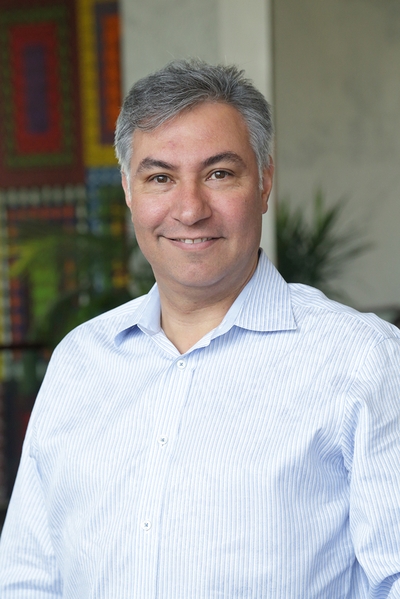
Leonardo Mariño-Ramírez, Ph.D.
Stadtman Investigator
Epidemiology and Genetics Research Area
NIMHD
Research Topics
The sequence of the human genome has accelerated biomedical research in unprecedented ways. In the last 20 years, we have developed technologies that increase our understanding of the biological functions encoded in the genome and made significant advances to reconstruct the evolution and history of the human species. Today we are starting to fulfill the promise of genomics for personalized medicine and healthcare. Interestingly, and for a variety of reasons publicly funded databases continue to miss a vast portion of the world's genetic variation. As of January 2018, the GWAS catalog has registered 78% of individuals from European ancestry while underrepresented populations make up less than 4% including African (2.4%), Hispanic or Latin American (1.3%) and Native American (0.03%). The sampling challenge is referred to as the genomics research gap and has the potential to exacerbate existing health disparities.
My research focuses on the joint analysis of (i) genetic ancestry and (ii) electronic health records in large biobank cohorts (e.g. UK Biobank, All of Us, TOPMed, Million Veteran Program) for the purpose of disease gene, variant discovery and mapping. I hypothesize that patterns of genetic ancestry and admixture in modern cosmopolitan populations like the ones in the US and Latin America can serve as a powerful tool for the characterization of the genetic architectures for a wide variety of health conditions affecting the country. My broad approach to close the genomic research gap entails the following specific steps: First: Local genetic ancestry characterization. Second: Computational phenotyping with electronic health records (EHRs). Third: Disease gene and variant discovery and mapping via genetic ancestry and admixture analysis.
Biography
Leonardo Mariño-Ramírez, PhD, is an Earl Stadtman Investigator in the Epidemiology and Genetics Research Area of the Division of Intramural Research (DIR) of the National Institute on Minority Health and Health Disparities (NIMHD). He uses integrative approaches to solve complex and challenging biological problems focused on reducing health disparities for underrepresented populations in the U.S. Dr. Mariño-Ramírez has an educational background in Microbiology and Biochemistry, including post-doctoral training focused on the development of computational methods to study the molecular and cellular interactions controlling gene expression in eukaryotes along with the evolution of eukaryotic gene regulatory elements, and more recently genetic ancestry and admixture in underrepresented populations. He received a BSc in Microbiology from Universidad de Los Andes and a PhD in Biochemistry from Texas A&M University. He believes in creativity and collaboration as an approach to solve scientific challenges and is a strong advocate of international and interdisciplinary collaboration. He is the recipient of four Fulbright fellowships. Dr. Mariño-Ramírez is an Editor for a number of peer-reviewed journals and a founding member of the Panamerican Bioinformatics Institute. The focus of his research is the joint analysis of genetic ancestry and electronic health records in large biobank cohorts for the purpose of disease gene, variant discovery and mapping.
Selected Publications
- Lam V, Sharma S, Spouge JL, Jordan IK, Mariño-Ramírez L. Landscape of racial and ethnic health disparities in the All of Us Research Program. Database (Oxford). 2024;2024.
- Lam V, Sharma S, Gupta S, Spouge JL, Jordan IK, Mariño-Ramírez L. Ancestry-attenuated effects of socioeconomic deprivation on type 2 diabetes disparities in the All of Us cohort. BMC Glob Public Health. 2023;1(1).
- Conley AB, Rishishwar L, Ahmad M, Sharma S, Norris ET, Jordan IK, Mariño-Ramírez L. Rye: genetic ancestry inference at biobank scale. Nucleic Acids Res. 2023;51(8):e44.
- Teagle WL, Norris ET, Rishishwar L, Nagar SD, Jordan IK, Mariño-Ramírez L. Comorbidities and ethnic health disparities in the UK biobank. JAMIA Open. 2022;5(3):ooac057.
- Nagar SD, Nápoles AM, Jordan IK, Mariño-Ramírez L. Socioeconomic deprivation and genetic ancestry interact to modify type 2 diabetes ethnic disparities in the United Kingdom. EClinicalMedicine. 2021;37:100960.
Related Scientific Focus Areas





Microbiology and Infectious Diseases
View additional Principal Investigators in Microbiology and Infectious Diseases
This page was last updated on Monday, February 10, 2025